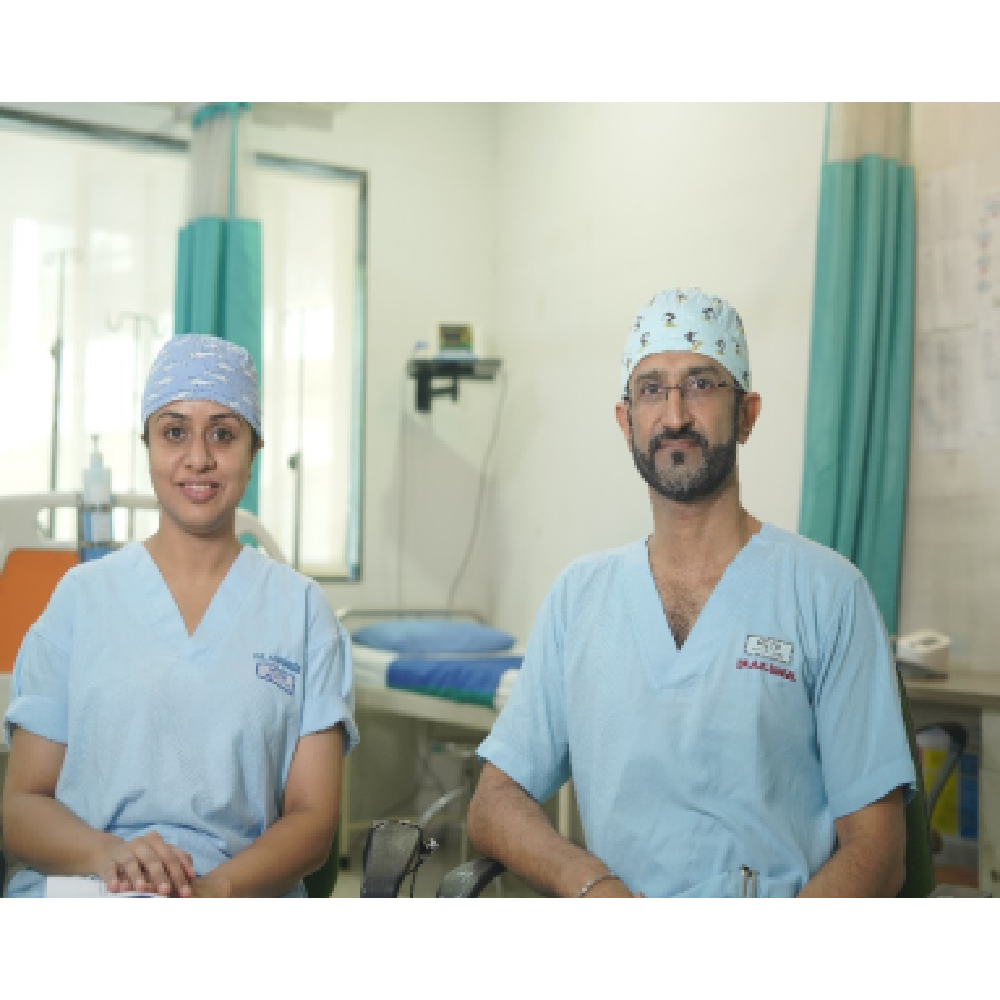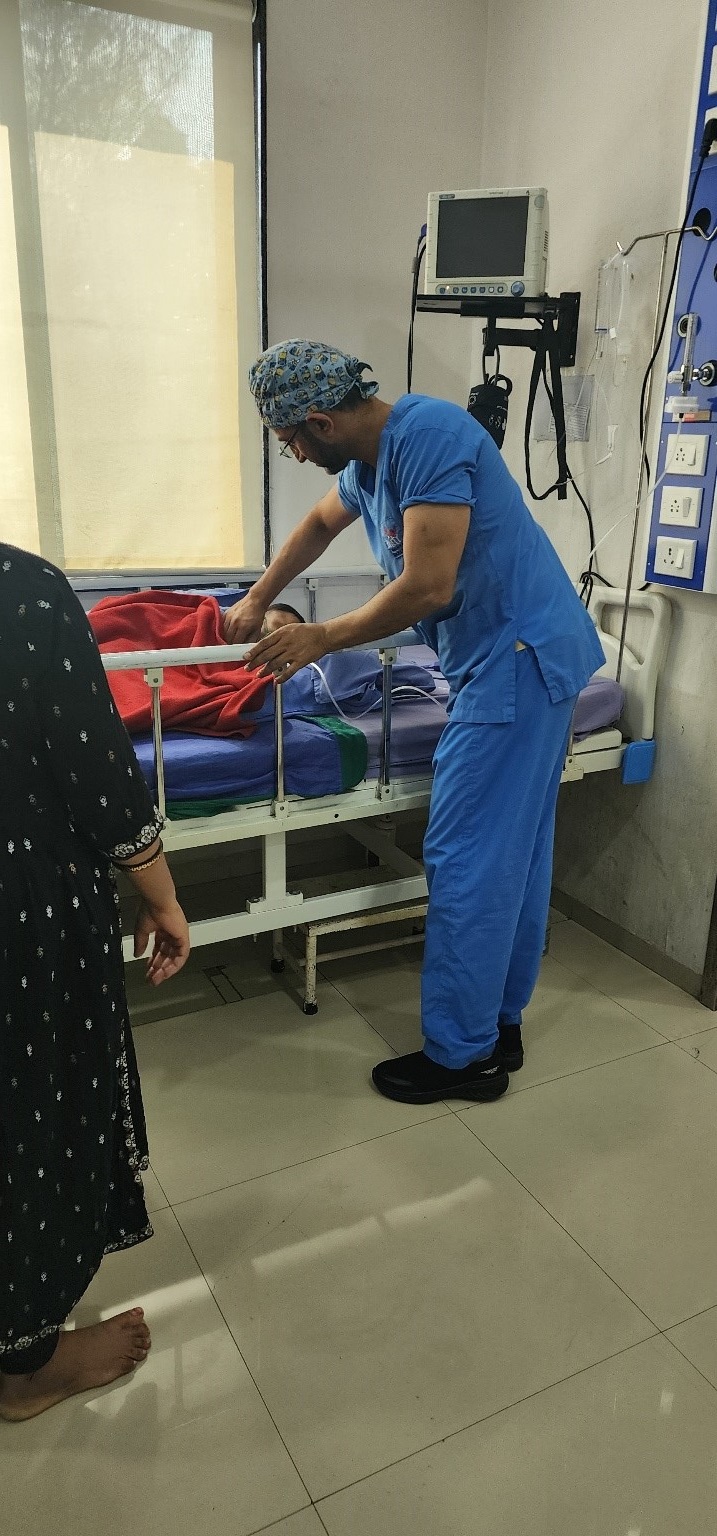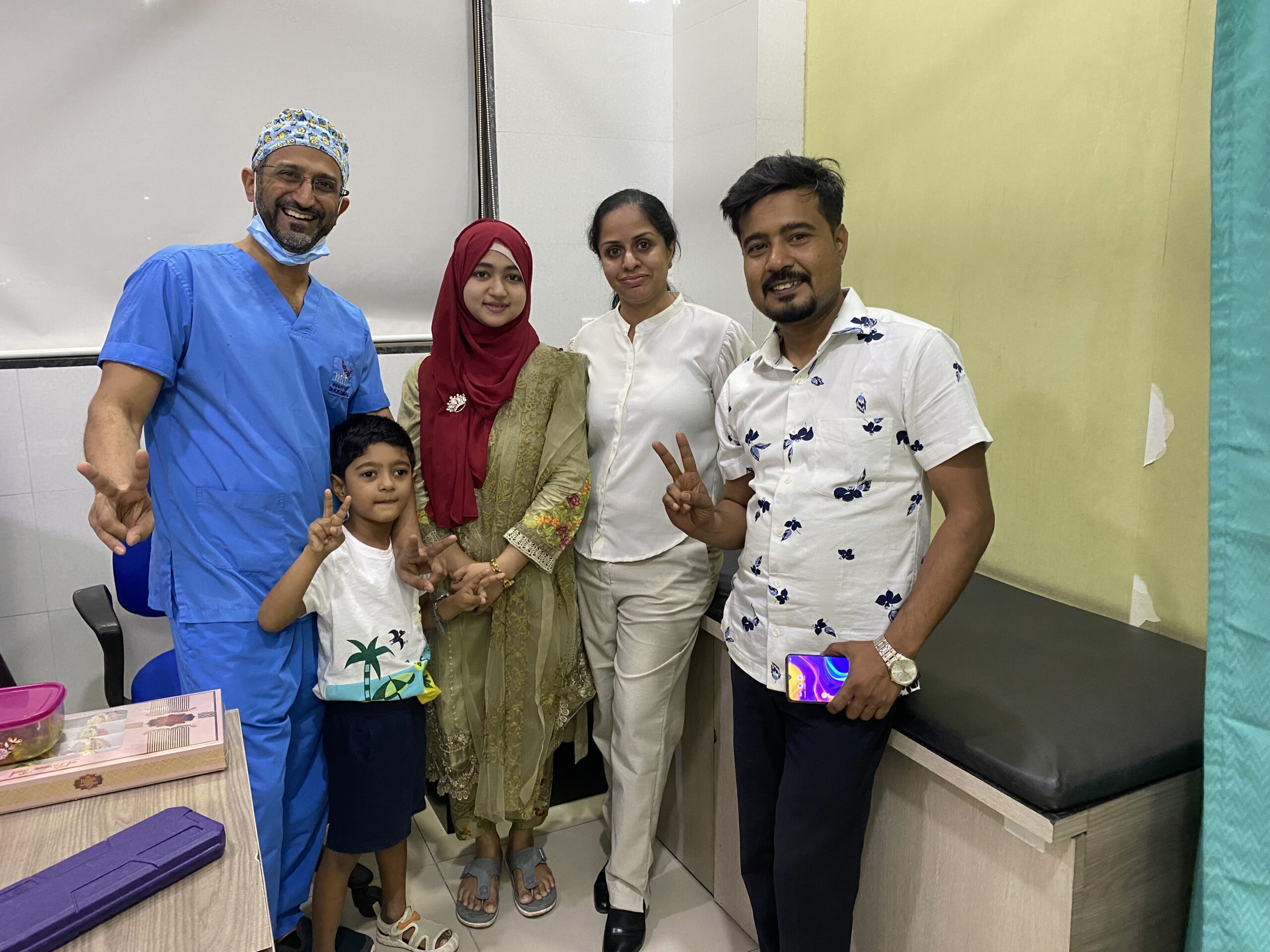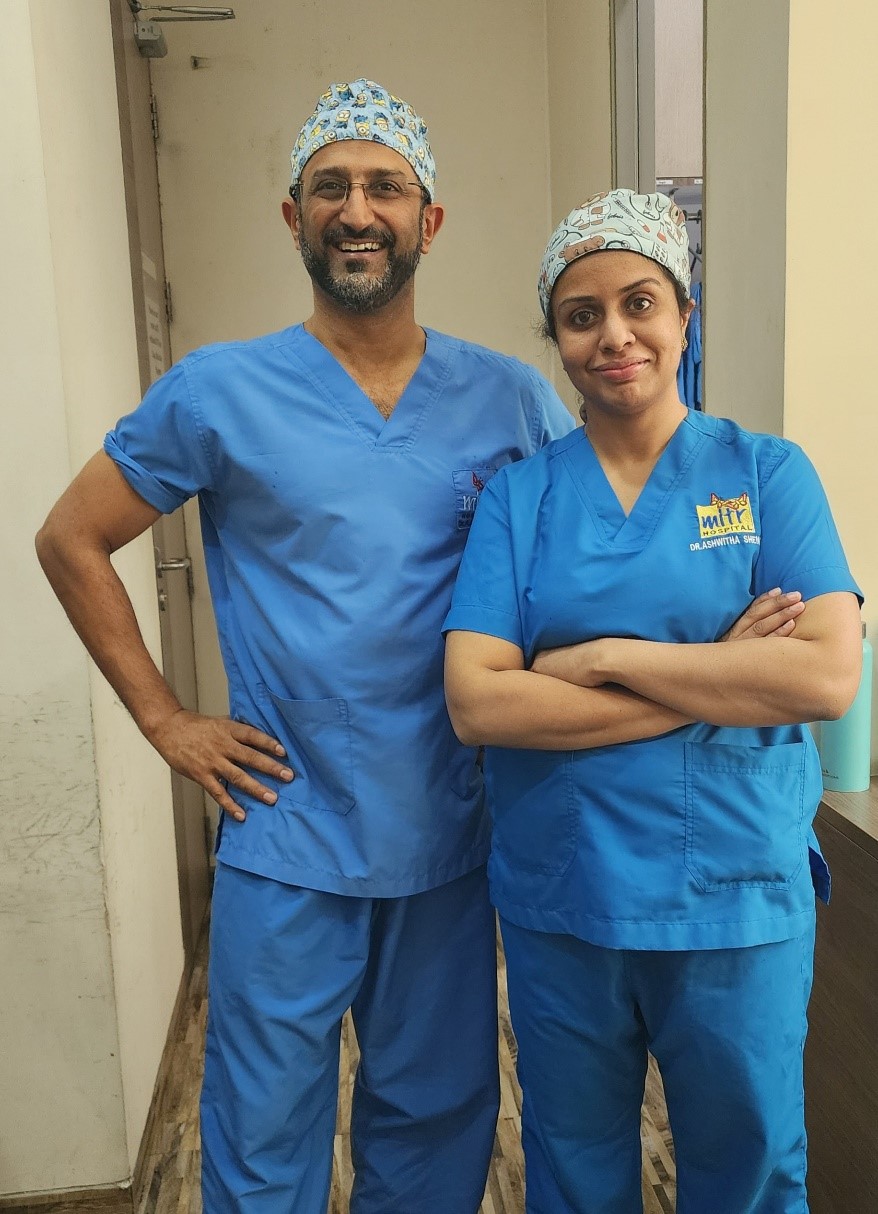Why Hypospadias Foundation is the best hospital for Hypospadias Surgery in India?
Hypospadias is a birth defect affecting the development of the penis. If you’re searching for the best pediatric urologist or hypospadias surgeon in India for your child’s hypospadias repair, the Hypospadias Foundation at MITR Hospital in Navi Mumbai deserves serious consideration.

- Here’s why:Hypospadias surgical expertise You Can Trust:
- A.K. Singal, a leading pediatric urologistand co-founder of the Hypospadias Foundation, is globally recognized for his expertise in hypospadias surgery. He has devoted more than 20 years to perfecting the art and craft of hypospadias repair surgeries.
- Dr Ashwitha Shenoy, pediatric surgeon, co-founder at Hypospadias Surgeon has also more than a decade of experience in pediatric urology surgeries.
- Dr Singal and Shenoy have demonstrated excellent success rates with over 3500 successful hypospadias repair procedures performed. Together, they have unparalleled experience handling all types of cases, from mild to complex.
- Dr Singal and Dr Shenoy work closely for all their cases to give best results for hypospadias surgery.
Focus on Excellence in Hypospadias Care:
- Unlike many hospitals with a general urology department, MITR Hospital has a pediatric urology department which runs Hypospadias Foundation, a mission entirely dedicated to hypospadias. This singular focus translates to in-depth knowledge, advanced surgical techniqueslike single stage urethroplasties, complex severe hypospadias repairs, DSD & intersex surgeries, redo & failed hypospadias repairs and buccal mucosa grafts, and potentially better outcomes for your child.
- For primary cases Dr Singal and Dr Shenoy are known for techniques such as TIP repairs, Onlay flap repairs, GAP repairs and Thiersch Duplay repairs.
- For redo cases, while initial focus is on managing without any grafts; for very complex multiple failed surgeries Dr Singal and Dr Shenoy are well renowned experts for oral mucosa or commonly known as buccal mucosa graft surgeries. Buccal mucosa grafts are known for improved cosmetic results and functionality in hypospadias repair when all previous surgeries have failed.
Success Speaks Volumes:
- The Hypospadias Foundation boasts high success rates and positive patient testimonials, a strong indicator of the quality of care provided. You can find these testimonials directly on the Hypospadias Foundation website https://www.hypospadiasfoundation.com/success-stories/
- Detailed Reviews are available at: Hypospadias foundation google page.
A Supportive Environment for Your Family:
- The Hypospadias Foundation understands the emotional weight of dealing with a child’s hypospadias diagnosis. They offer a supportive environment with a team dedicated to addressing your concerns and ensuring a smooth experience for both you and your child.
Considering the Bigger Picture:
While the Hypospadias Foundation stands out for its expertise, here are some additional factors to consider for your child’s hypospadias surgery:
- Location:Situated in Navi Mumbai, Maharashtra, factor in travel logistics if you’re located in a different city. Currently, Hypospadias foundation received patients from over 20 countries and almost all states of India. There are lot of airbnb’s and hotels available within 10min drive from the hospital. Hospital is well connected and is about 1 hour drive from Mumbai international airport.
- Cost:Research hypospadias surgery costs in India to plan accordingly. The Hypospadias Foundation offers information on their website about surgery expenses https://www.hypospadiasfoundation.com/.
- Second Opinions:Consulting other qualified pediatric urologists for a broader perspective can be helpful. You can also take a teleconsult with Dr Singal or Dr Shenoy by calling up on phone numbers of Mitr Hospital.
Contacting the Hypospadias Foundation:
- Website: https://www.hypospadiasfoundation.com/
- Email: hypospadiasfoundationindia@gmail.com
- Phone:
- +916262840940
- +916262690790
- +919324180553 (whatsapp and teleconsult)
Making an Informed Decision:
The Hypospadias Foundation, with its specialized team and Dr. Singal’s & Dr Shenoy’s experience, is a strong contender for your child’s hypospadias surgery in India. Remember to thoroughly research, ask questions, and make an informed decision based on your specific needs and priorities.
SEO Rich Keywords:
Best hospital for hypospadias surgery in india, Hypospadias surgery India, Best pediatric urologist India, best hypospadias surgeon Mumbai, hypospadias repair, Hypospadias surgery cost India, best hypospadias surgeon Mumbai, best centre for hypospadias surgery in Mumbai, best centre for hypospadias india,
Contact Form for Hypospadias Foundation
Please fill all clinical details and upload pictures and clinical summaries (if available)



